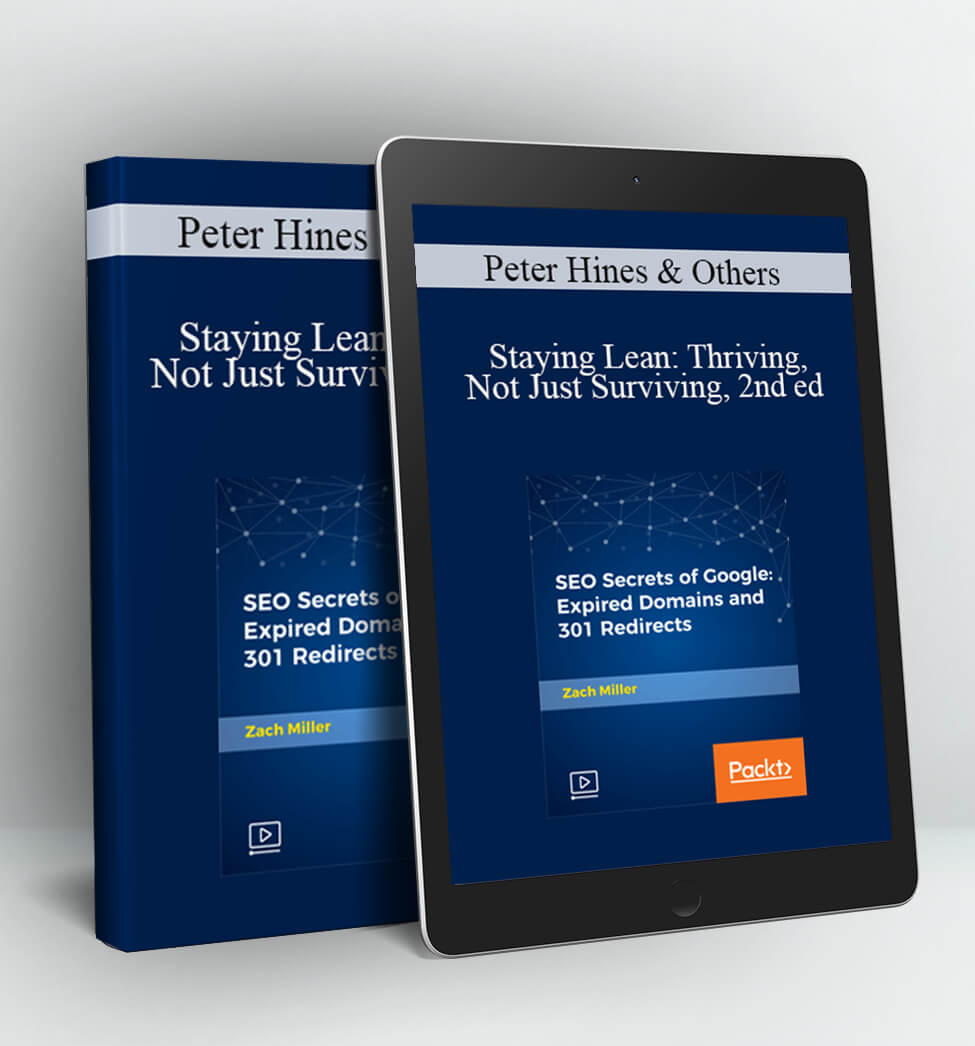Manage Your Money and Investments with Microsoft Excel – Peter G. Aitken
Manage Your Money and Investments with Microsoft Excel
By Peter G. Aitken
Released June 2005
Format Ebook (PDF)
Sure you want to save money. We all do. But saving money is sometimes easier said than done. Did you know that there is a program probably already installed on your computer that can help you manage your money better? It’s Microsoft Excel, part of the Microsoft Office suite. Manage Your Money and Investments with Excel can help you take control of your finances with Excel. Learn how to:
-
Perform basic financial calculations.
-
Track and analyze investments.
-
Compare mutual fund options.
-
Manage mortgages, loans, and escrow accounts.
-
Balance checking accounts and manage credit card debt.
-
Track your net worth.
Discover new ways to make money-saving decisions and manage your finances with Manage Your Money and Investments with Excel.
Table of contents
- Copyright
- Dedication
- About the Author
- Acknowledgments
- We Want to Hear from You!
- Introduction
- Why Excel?
- Who This Book Is For
- More Information and Updates
- I. Understanding the Basics of Financial Calculations
- 1. Taking Control of Your Finances
- Facing the Problem
- Setting Goals
- What Excel Can Do for You
- Why Excel and Not Quicken or Money?
- Excel Versions
- Using the Worksheet Templates
- Template Conventions
- About Percentages
- 2. Using Excel to Work with Money
- Excel Basics
- Getting Around
- Selecting Cells
- Entering and Editing Data
- Formatting the Worksheet
- Formulas in Excel
- Excel Functions
- Excel and Money
- Cash Flow
- Formatting Money and Percentage Values
- Charting Your Course
- Excel Basics
- 3. Working with Basic Financial Calculations
- Calculating Loan Payments
- Calculating Principal Payments
- Working with Future Value
- Using the Present Value Function
- Calculating Interest Rate
- 4. Tracking Your Net Worth
- What Is Net Worth?
- Assets to Include
- Liabilities to Include
- The Net Worth Calculator
- Interpreting Your Net Worth
- Keeping Track over Time
- What Is Net Worth?
- 1. Taking Control of Your Finances
- II. Taking Control of Your Bank and Credit Card Accounts
- 5. Managing Your Money with a Budget
- What Is a Budget?
- Budget Fundamentals
- The Home Budget Calculator
- The Overview
- Transactions
- Paychecks
- Entering Transactions
- Getting Started with Your Budget
- Living with a Budget
- Analyze Your Spending
- Live Within Your Means
- Balancing Your Budget
- Watch Impulse Buying
- Look for Sales
- Learn to Cook
- 6. Being Smart with Your Checking Accounts
- How Checking Accounts Work
- Types of Checking Accounts
- Other Checking Account Fees
- Understanding Debit Cards
- Be Smart with ATM Cards
- Cheap Checks
- Other Account Services
- How to Get a Free Checking Account
- The Checkbook Register Application
- How the Checkbook Register Workbook Works
- Getting Started with the Register
- Entering Transactions
- Sorting Transactions
- Editing Transactions
- Keeping Headings in View
- Reconciling Your Register
- How Checking Accounts Work
- 7. Getting the Most From Your Credit Cards
- How Credit Cards Work
- Credit Card Interest Rates
- Credit Card Fees
- Credit Card Advantages
- What About Debit Cards?
- Hooray for the Grace Period
- Reward Cards
- Using Your Credit Cards Wisely
- Never Charge Anything You Cannot Pay Off
- Use the Grace Period
- Get a Rewards Card
- Be Careful to Make Payments on Time
- Mind Your Credit Limit
- How Much Will It Really Cost?
- The Real Cost Calculator
- Why Carrying a Balance Is to Be Avoided
- Paying Off Your Balance
- The Payoff Calculator
- Using a Credit Card for Cash Advances
- Understanding Cash Advances
- The Cash Advance Cost Calculator
- How Credit Cards Work
- 5. Managing Your Money with a Budget
- III. Financing Your Home and Car
- 8. Understanding Mortgages—And Getting the One That’s Best for You
- The Many Benefits of Home Ownership
- Types of Mortgages
- Traditional Fixed Rate Mortgages
- Adjustable Rate Mortgages
- Balloon Mortgages
- Hybrid Mortgages
- Your Mortgage Payment
- Other Mortgage Costs
- Origination Fee
- Points
- Private Mortgage Insurance
- The Tax Benefits of Home Ownership
- Understanding Mortgage Amortization
- How Much Can I Borrow?
- The Maximum Mortgage Calculator
- The Mortgage Detail Calculator
- 9. Considering Home Equity Loans
- What Is a Home Equity Loan?
- How They Work
- How Much Can I Borrow?
- Home Equity Loan Cautions
- Home Equity Calculations
- 10. Refinancing Your Mortgage
- Why Refinance?
- Costs of Refinancing
- Making a Decision
- The Mortgage Refinance Breakeven Calculator
- How to Use the Calculator
- 11. Understanding Escrow Accounts
- Escrow Is for Taxes and Insurance
- Canceling Your Escrow Account
- The Escrow Cancellation Calculator
- 12. Renting Versus Buying Your Home—Making the Right Choice
- Why Buy a Home?
- Financial Factors of Home Ownership
- The Down Payment
- Closing Costs
- Ownership Costs
- The Rent Versus Buy Calculator
- 13. Your New Car—Lease or Buy?
- Do You Really Need a New Car?
- Understanding Auto Leases
- Advantages and Disadvantages of Leasing
- Types of Leases
- Lease Conditions
- Lease Payment Calculator
- The Lease or Buy Calculator
- 8. Understanding Mortgages—And Getting the One That’s Best for You
- IV. Managing Your Investments
- 14. Learning the Fundamentals of Investing
- Investment Vehicles
- Stocks
- Bonds
- Mutual Funds
- Types of Mutual Funds
- Mutual Fund Investment Strategies
- Mutual Funds Fees
- Exchange Traded Funds
- Treasury Bills
- Savings Accounts
- Certificates of Deposit
- Money Market Accounts
- Risk Versus Return
- Your Investment Timeframe
- Choosing a Brokerage Account
- Dividend Reinvestment Plans
- Investment Vehicles
- 15. Tracking Your Investments
- Why Track Investments?
- The Investment Portfolio Workbook
- The Holdings Worksheet
- The Query Worksheet
- Using the Investment Portfolio Template
- 16. Comparing Mutual Funds
- Choosing Mutual Funds
- The Mutual Fund Comparator
- 17. Planning for College or Retirement
- Long-term Planning
- Accounting for Inflation
- The Inflation Effects Calculator
- Predicting Your Needs
- Not Over-Saving
- Saving for College
- The College Cost Calculator
- The College Savings Calculator
- Saving for Retirement
- What About Social Security?
- How Much Retirement Income Will You Need?
- How Much Do You Need to Save?
- Annuities
- The Retirement Planner Workbook
- Long-term Planning
- 14. Learning the Fundamentals of Investing
- Appendices
- A. Workbook Reference
- Chapter 4: Net Worth Calculator
- Chapter 5: Budget Workbook
- The Budget Menu
- The Transactions Worksheet
- The Transaction Entry Form
- Entering Paychecks
- The Overview Worksheet
- Chapter 6: Checkbook Register Workbook
- The Register Menu
- Entering Transactions
- Sorting the Transactions
- Calculating the Totals
- Chapter 7: Real Cost Calculator
- Chapter 7: Payoff Calculator
- Chapter 7: Cash Advance Cost Calculator
- Chapter 8: Mortgage Payment Calculator
- Chapter 8: Mortgage Points Comparator
- Chapter 8: Mortgage Tax Savings Calculator
- Chapter 8: Maximum Mortgage Calculator
- Chapter 8: Mortgage Detail Calculator
- Chapter 9: Home Equity Line of Credit Calculator
- Chapter 10: Mortgage Refinance Breakeven Calculator
- Chapter 11: Escrow Cancellation Calculator
- Chapter 12: Rent Versus Buy Calculator
- The Input Worksheet
- The Output Worksheet
- The Buying Section
- The Renting Section
- The Hidden Columns
- The Chart Worksheet
- Chapter 13: Lease Payment Calculator
- Chapter 13: Lease or Buy Calculator
- Chapter 15: Investment Portfolio Workbook
- Chapter 16: Mutual Fund Comparator
- Chapter 17: Inflation Effects Calculator
- Chapter 17: College Cost Calculator
- Chapter 17: College Savings Calculator
- Chapter 17: Retirement Planner Workbook
- B. Glossary of Financial Terms
- A. Workbook Reference
Access Download Manage Your Money and Investments with Microsoft Excel – Peter G. Aitken right now!
Delivery Method:
After your purchase, you’ll get access to the downloads page. Here, you can download all the files associated with your order.
Downloads are available once your payment is confirmed, we’ll also send you a download notification email separate from any transaction notification emails you receive from Vinlearn.




